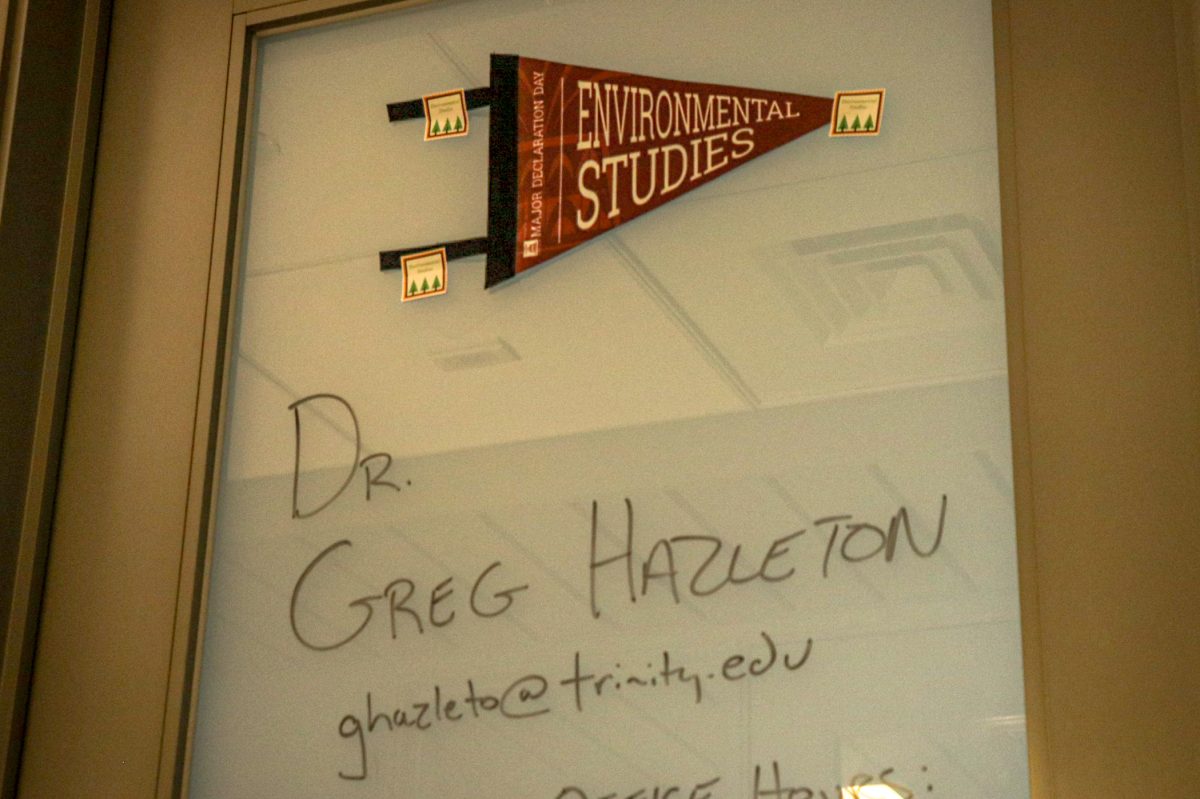The environmental studies major at Trinity has a glaring flaw. That flaw, as communicated to me by a number of environmental studies majors, including three of my roommates, is that they receive a Bachelor of Arts (B.A.) as opposed to a Bachelor of Science (B.S.) degrees. As a history major, I was initially confused as to why anyone would want a B.S. over a B.A. (sorry STEM kids). But the difference can have a major impact on one’s education and career, and Trinity should move to adjust its academic structure to better accommodate and support these scientifically and environmentally-minded students.
Ultimately, the issue at the core of all of this is the distinction between environmental science and environmental studies. Environmental science is, as the name implies, mostly focused on the science of the environment. Environmental studies, while still ultimately science-based, is often slightly more oriented towards the humanities. Trinity only offers environmental studies, pigeonholing ecologically-minded students down a path that might not be appropriately tailored to their educational or professional aspirations.
A key complaint is that most environmental studies majors have to take many of the same science classes as their other STEM peers, including a number of upper-division chemistry and biology courses. If I were to try and take organic chemistry, I am confident I would crumple over and die by the end of syllabus day. Environmental studies majors brave this and sometimes more, yet they are and yet are ultimately awarded degrees as if they were “lesser” STEM students. While the elitism of hard-science majors is another topic and point of contention entirely, it is important to recognize that environmental studies majors are ultimately still students of science as well.
Many of the top environmental science graduate programs in the country either require applicants to have B.S. degrees or heavily prefer that applicants have them who have a B.S. degree. For example, one of my roommates wants to apply to Texas A&M’s Soil Science graduate program. However, despite my roommate having taken the program’s required coursework and being extremely knowledgeable in botany, the program wants applicants to have a B.S. Exceptions can be made, but this is an unnecessary burden Trinity has placed on environmental studies students interested in a science-based graduate program.
This difficulty with graduate programs compounds further because a graduate degree in environmental science can potentially increase prospective salaries and job opportunities. Equally frustrating is that environmental studies students often don’t find out about the potential future downsides of their degree until it is too late to switch into chemistry or biology. Simply put, Trinity’s academic institutions are failing to adequately support and inform environmental studies students. This failing is even more disappointing as the country transitions towards a renewable economy and demand for jobs with environmental expertise grows.
The solution, then, should be obvious. Trinity should offer both environmental studies and environmental science as majors. Much of the educational infrastructure is already in place, and it would all certainly take less effort to implement than some of Trinity’s recent changes and expansions of its academic offerings, such as the transition to a four-school academic system. This change would give students more freedom to choose if they want to explore the environment and ecology from a more humanistic or scientific perspective, thus opening up greater career opportunities and creating a more successful and academically diverse student body.






